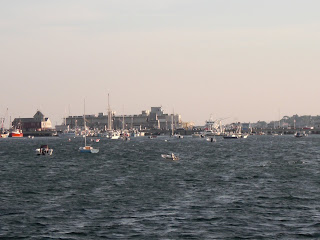 Psalms 31 * 35; Proverbs 23>19-21,29-24:2; 1 Timothy 5:17-22(23-25); Matthew 13:31-35
Psalms 31 * 35; Proverbs 23>19-21,29-24:2; 1 Timothy 5:17-22(23-25); Matthew 13:31-35We have the mustard seed parable and the yeast mixed with flour metaphor in today's Gospel selection from Matthew. The last few days in our Daily Office readings Jesus has been throwing out a whole bunch of these very short "parables" of "the kingdom is like...." sayings. These are so familiar to so many people that they are almost hard to hear, or decipher something new from, or remind us of something we perhaps have forgotten.
One of the points Jesus is driving home today is the truth that our smallest seeming action can have enormous consequences in the creation of the kingdom he is announcing. These actions can be corporate and public or private and personal. An example from my Rule of Life, is that in the last year I have incorporated various "free form" prayers while I say Morning Prayer. One is "Gracious and loving God, guide me to be an effective Episcopal priest today." Another is "Lord Jesus, and through you to our gracious and loving God, help me to be open to your next call and help that parish to be open to discerning me as their next rector." Rather simple prayers yet I find them centering and a "turning over to God" things that are out of my control. I find these (and other intercessory prayers) help me to focus and be more focused, and they do buttress me in doing the work I am, at present, called to do.
Simple, yes I know, but effective for me and I think are examples of that yeast and that mustard seed that can and does change form and substance and create and inspire new things.
jfd+
Copyright 2010, The Rev. John F. Dwyer. All Rights Reserved.










